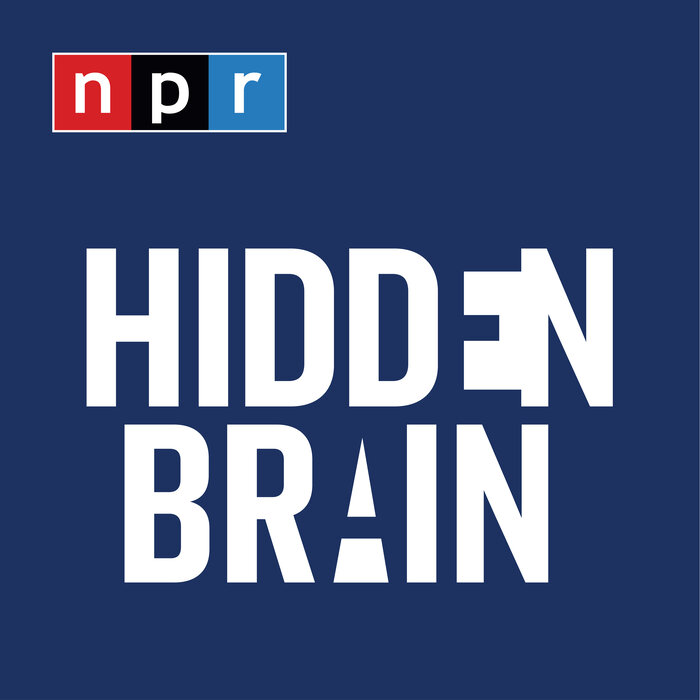
NPR: Hidden Brain
Podcast
Politics, Psychology
May 18, 2020
Our Better Angels
Sam Bowles, a behavioral economist and author of The Moral Economy: Why Good Incentives Are No Substitute for Good Citizens, says it's a mistake to focus on the bad, and to ignore the good in people.
"Self-interest in markets and in relations with government isn't going to be a good way to organize the future," says Bowles. "[COVID-19] tells us that we have to rely on other things — communities, neighborhoods, obligations we have to each other — which are not self-interested. That's what we're seeing is fundamentally getting people through this."
This week on Hidden Brain, we explore how laws written to govern the lawless end up changing the behavior of the lawful — for the worse. And we ask, what would happen if public policy was designed to care less about the man who sold his masks for a profit? What would happen if we put people like Erika at the center of our thinking instead?

NPR: Throughline
Podcast
Politics, History
September 19, 2019
Puerto Rico
Puerto Rico became a U.S. territory in 1898 and for much of the next fifty years Puerto Ricans fought fiercely about this status. Should they struggle for independence, or to be a U.S. state, or something in between? In this episode, we look at Puerto Rico's relationship with the mainland U.S. and the key figures who shaped the island's fate.

NPR: Code Switch
Podcast
Race, Politics
April 15, 2020
Black Like Who?
Black folks have officially been categorized by the government as a bunch of different things, depending on the political moment. During the very first U.S. census back in 1790, it was simply "slaves." In 1840, it was "free colored males and females" and, of course, slaves. What was "black," "mulatto," "quadroon" and "octoroon" in 1890 eventually gave way to "Negro" in 1950.
And now, in 2020, it's "Black or African American," with the option to write in a country of origin. Just like the nomenclature on the census, who counts as black in the United States has always been evolving — and being on one side of that line or the other has always been enormously consequential.
This week on the podcast, we talked to a lot of people about the ever-shifting boundaries of blackness, including Christina Greer, an associate professor of political science at Fordham University. She's the author of the book Black Ethnics: Race, Immigration, And The Pursuit Of The American Dream.

NPR: Hidden Brain
Podcast
Psychology, Politics
October 8, 2018
Red Brain, Blue Brain
When most of us think about how we came to our political views, we often give a straightforward answer. We believe our stances on taxes, immigration or national security are shaped by those around us — our friends, parents, teachers. We assume our life experiences are the root of our political ideologies.
But what if there is something deeper in us that drives the music we listen to, the food we eat — even the politicians that we elect?
John Hibbing is a political scientist at the University of Nebraska-Lincoln. Over the years, he's studied how our political views may also be influenced by our biology.

NPR: Hidden Brain
Podcast
Psychology
June 12, 2017
Rap on Trial
This week on Hidden Brain, we'll meet Tosin and explore his case from all sides. We'll also consider what criminologist Charis Kubrin sees as a troubling rise in prosecutions that use rap lyrics to bolster claims that a defendant is violent.

NPR: Hidden Brain
Podcast
Psychology
April 2, 2018
Tunnel Vision
Scarcity takes a huge toll. It robs people of insight. And it helps to explain why, when we're in a hole, we sometimes dig ourselves even deeper.
This week on Hidden Brain, we'll explore the concept of scarcity and how it affects people across the globe — from sugar cane farmers in India to time-starved physicians in the United States.

NPR: Hidden Brain
Podcast
Communications
September 4, 2017
Hiding Behind Free Speech
The United States goes further than many other countries in its legal protections for speech — even hate-filled speech. Some people have used free speech claims, for example, to defend the white nationalists and neo-Nazis who took to the streets of Charlottesville, Virginia several weeks ago.
In this episode, we look more closely at how people use free speech defenses, and why their true motivations might not be apparent — even to them.




